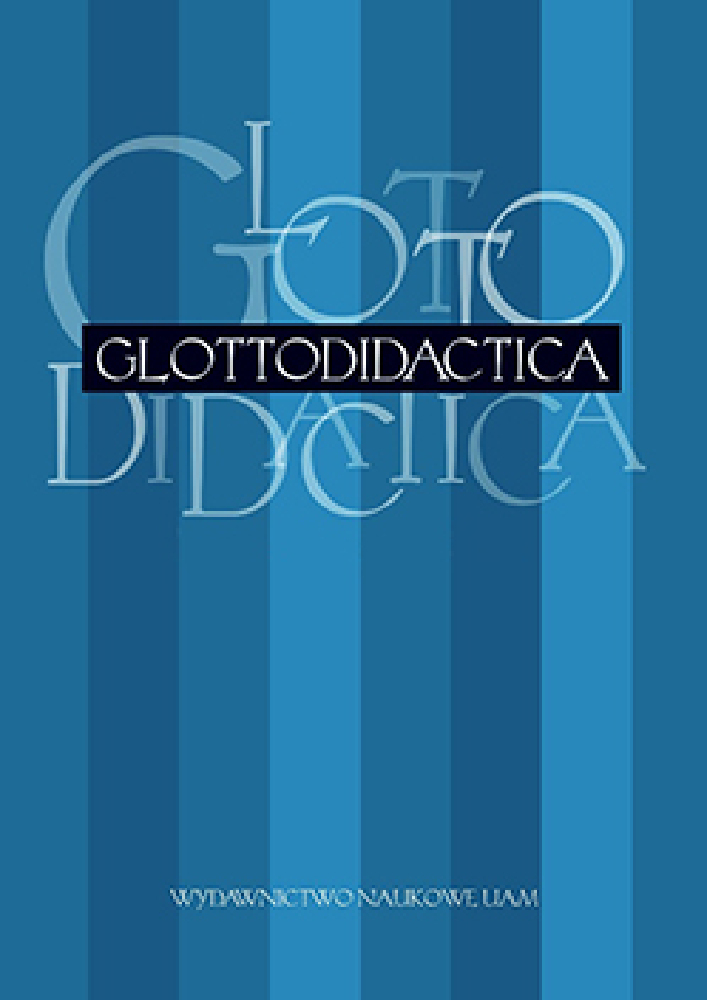Résumé
In recent years, the “crisis of German studies” has become an increasingly current topic within academic discourse. This SUBJECT, more precisely defined as “legitimation crisis of traditional German studies”, has been long debated in Germany. Legitimation is a common principle in the fields of law, political science, and sociology. It refers to other principles such as ‘legitimity’ and ,justification’. Since the Nineties, the crisis in German literature studies appears to be rather an identity crisis, the origin of which can be seen in the centrifugal forces of attraction of several other disciplinary approaches. Something similar has happened – worldwide – in the field of German linguistics, and even in the branch of German as a Foreign Language teaching practice, due to the progressively increasing habit of providing the GFL-object with attributes specifying its specific purposes, for instance: German for Occupational Purposes, German for Business, German for Medical Purposes, for legal Professionals, Engineers, German for young, adult, senior learners etc. The question of which variety of German should be considered at the university level depends upon several factors, a simple answer is therefore not forthcoming. It is extremely important for the modern field of German studies especially within the “German as a Foreign Languagecountries”, that the object „GFL for humanistic purposes” be clearly defined, at least as a variety within the multiplicity of given alternatives.
Références
Appelt, E.P. / Hanhardt, A.M. 1947. Deutsche Gespräche. Boston: D.C. Heath and Company.
Deutsch, S. 19037. Medical German. A Manual. Designed to Aid Physicians in their Intercourse with German Patients and in Reading Medical Works and Publications in the German Language. New York [1884].
Duden. Die Grammatik. 20096. Mannheim/Leipzig/Wien/Zürich: Dudenverlag.
Eroms, H.-W. 2008. Stil und Stilistik. Berlin: Erich Schmidt
Foschi Albert, M. 2014. Der Autor und Erzähler spricht. Eine textstilistische Untersuchung der Erzählinstanz in „Die gerettete Zunge“ von Elias Canetti. In: Der Deutschunterricht 2, 50-60.
Franck, H. J. 1973. Geschichte des Deutschunterrichts. Von den Anfängen bis 1945. München: Hanser.
Fritz, T.A. / Koch, G. / Trost, I. (Hrsg.). 2008. Literaturstil – sprachwissenschaftlich. Festschrift für H.-W. Eroms zum 70. Geburtstag. Heidelberg: Winter.
Glück, H. 2002. Deutsch als Fremdsprache in Europa vom Mittelalter bis zur Barockzeit. Berlin / New York: de Gruyter.
Greiner, U. 1997. Die Krise der Germanistik – vorbei. Annäherungen an den Stand der Dinge in fünf Schritten . In: „Die Zeit“ 14. <http://www.zeit.de/1997/14> (zu leletzt abgerufen a, 11.11.2015).
Hoffmann, M. / Keßler, Ch. (Hrsg.). 2003. Berührungsbeziehungen zwischen Linguistik und Literaturwissenschaft. Frankfurt/M.: Peter Lang.
Klein, W. / Schnell, R. (Hrsg.). 2008. Literaturwissenschaft und Linguistik. Zeitschrift für Literaturwissenschaft und Linguistik LiLi 38, 150.
Klein, W. 2008. Die Werke der Sprache. Für ein neues Verhältnis zwischen Literaturwissenschaft und Linguistik“. In: Zeitschrift für Literaturwissenschaft und Linguistik 150, 8-32.
Martinez, M. / Scheffel, M. (1999). Einführung in die Erzähltheorie. München: C.H.Beck.
Nickisch, R.M.G. 1999. Der Brief und andere Textsorten im Grenzbereich der Literatur. In: H. L. Arnold / H. Detering (Hg.). Grundzüge der Literaturwissenschaft. München, 357-364.
Paul, L. 1978. Geschichte der Grammatik im Grundriß, Weinheim / Basel: Beltz.
Stockinger, L. 2013. Hermann August Korff. Geistesgeschichte in drei politischen Systemen. In: Öhlschläger, G. / Schmid, H.U. / Stockinger, L. / Werle, D. (Hrsg.). Leipziger Germanistik. Beiträge zur Fachgeschichte im 19. und 20. Jahrhundert. Berlin/Boston, 193-232.
Tschirner, E. 2014. Zur Skalierung von Deutsch als Bildungssprache. Internationale Referenzrahmen im Vergleich. In: Germanistik in Brasilien: Herausforderungen, Vermittlungswege, Übersetzungen. Beiträge der DAAD-Germanistentagung 2013 mit dem Partnerland Brasilien. Göttingen: Wallstein, 93-108.
Weinrich, H. 1985. Wege der Sprachkultur. Stuttgart: Deutsche Verlags-Anstalt.
Licence
© Marina Foschi Albert 2015

Ce travail est disponible sous licence Creative Commons Attribution - Pas de Modification 4.0 International.
Auteurs
Les auteurs de textes acceptés pour publication dans la revue Glottodidactica sont tenus de remplir, signer et renvoyer à l'adresse de la rédaction, un accord sur l'octroi d'une licence gratuite pour les œuvres, avec obligation d'accorder une sous-licence CC.
Conformément à cet accord, les auteurs des textes publiés dans la revue Glottodidactica accordent à l'Université Adam Mickiewicz de Poznań une licence non exclusive et gratuite et autorisent l'utilisation de la sous-licence Creative Commons Attribution-NoDerivatives 4.0 International (CC BY-ND 4.0).
Les auteurs se réservent le droit de disposer librement de l'œuvre.
Utilisateurs
Les utilisateurs d'Internet intéressés ont le droit d'utiliser les œuvres publiées dans la revue Glottodidactica depuis 2016, selon les conditions suivantes :
- Attribution – obligation de fournir, conjointement avec l'œuvre distribuée, des informations sur l'auteur, le titre, la source (lien vers l'œuvre originale, DOI) et la licence elle-même.
- Aucune modification – l'œuvre doit être préservée dans sa forme originale. Sans le consentement de l'auteur, il n'est pas possible de distribuer l'œuvre modifiée sous forme de traductions, publications, etc.
Les droits d'auteur sont réservés pour tous les textes publiés avant 2016.
Autres
L'Université Adam Mickiewicz de Poznań conserve les droits sur la revue dans son ensemble (mise en page, forme graphique, titre, conception de la couverture, logo, etc.).
A PARTIR DE L’ANNEE 2015, LES ARTICLES PUBLIÉS DANS LA REVUE SONT DISPONIBLES SOUS LICENCE CREATIVE COMMONS : https://creativecommons.org/licenses/by-nd/4.0/deed.fr




